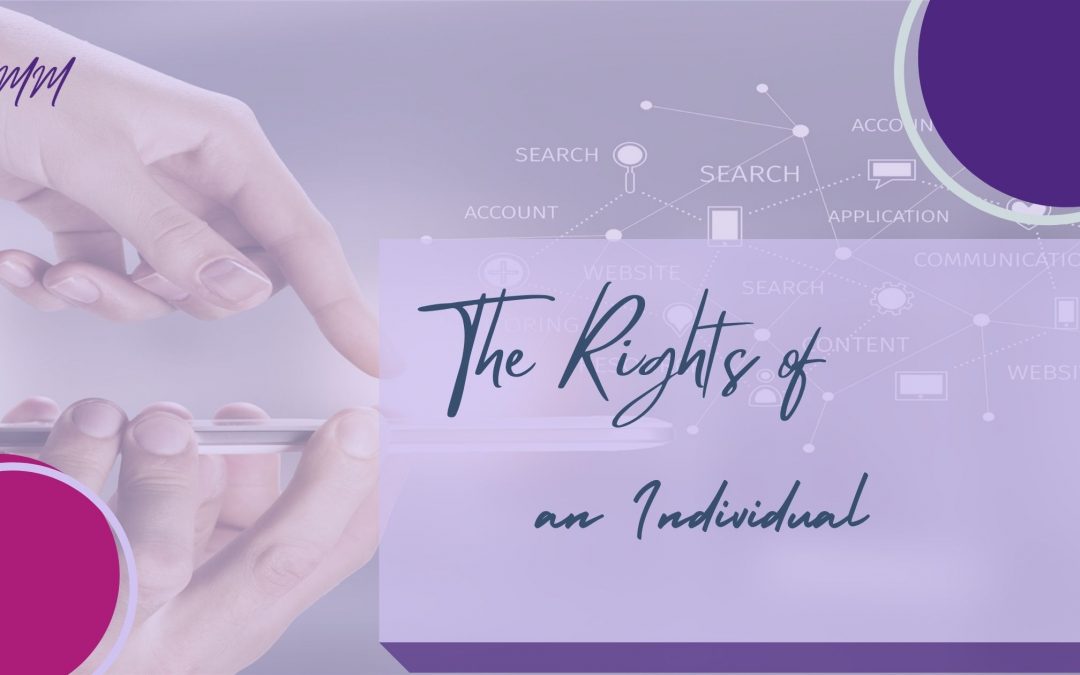Data protection is all about the rights of an individual and the systems you need to have in place to comply with the requests that, sooner or later, you will be faced with from the people whose data you may hold or process.
Knowing what those individual rights are will help you to recognise a request when you encounter one. It will also be a big help when putting the policies in place to deal with them within the required time. Familiarity with these eight key rights will also help you record the requests you receive and recognise the importance of handling and transmitting the data safely and securely.
Here is a breakdown of the rights of an individual regarding data:
The right to be informed
The collection of a person’s data and its subsequent use are things they have a right to be informed about. It’s important to provide the following things:
- The reasons why you are processing their data
- How long you intend to retain it and who you will share it with. (This is privacy information, which has to be provided when you collect the data itself)
- The inform you provide must be transparent, easy to understand and no longer or complex than it needs to be
The right of access
Everyone has the right to access their personal data and other supplementary information by making a ‘subject access request’ (SAR). This request can be made to you verbally or in writing by the person themselves or a third party acting on their behalf.
- A business usually cannot charge a fee for dealing with a SAR request
- They have to be dealt with in a timely way, usually within one month of receiving the request (this can be extended if the request is considered complex)
- The data must be disclosed in a secure way
The right to rectification
Sometimes, data held are inaccurate or incomplete; an individual has the right to have it rectified.
- This can be done verbally or in writing
- Similarly to a SAR request, this must be undertaken in a timely fashion, within one calendar month
The right to erasure
The right to be forgotten is one that everyone has, although there are certain extenuating circumstances when not all data can be deleted. This might be as a result of other legal regulations and reasons.
The right to restrict processing
Whether restricted or suppressed, in certain circumstances, an individual does have the right to allow you to store personal data but not to use it.
The right to data portability
As the name implies, data portability gives a person the right to obtain the personal data you hold about them and reuse it for a different service. That might help them find a better bank, a different GP or a cheaper energy supplier.
The right to data portability applies only to information that has been given to a controller.
The right to object
Everyone has the right to voice objections to their data being used for direct marketing. However, under certain circumstances, companies can continue processing data if a compelling reason to do so can be proven.
- You have to inform an individual about their right to object
- You can refuse an objection but you need to be aware of the information you have to provide in doing so
Rights around automated decision making and profiling
Automated decision making and profiling eradicates the human element from decision making and evaluating certain things relating to an individual and their data.
- Businesses can only carry out automated decision making and profiling under certain contractual, legal and explicitly consensual conditions
- The facility to challenge a decision or request human intervention must be in place
- Systems must be audited regularly to ensure they are working as they are meant to
For more detailed information relating to the individual’s rights and how you and your business can be fully compliant, visit The Information Commissioner’s Office website, where there is a dedicated breakdown and checklist for each.
Alternatively, reach out via my site for the help and advice of a GDPR specialist.

